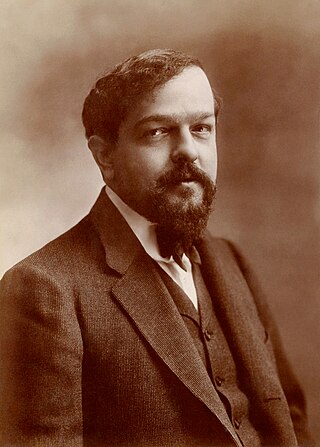
(Achille) Claude Debussy was a French composer. He is sometimes seen as the first Impressionist composer, although he vigorously rejected the term. He was among the most influential composers of the late 19th and early 20th centuries.

Dmitri Dmitriyevich Shostakovich was a Soviet-era Russian composer and pianist who became internationally known after the premiere of his First Symphony in 1926 and thereafter was regarded as a major composer.
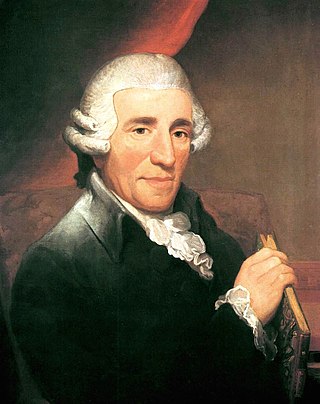
Franz Joseph Haydn was an Austrian composer of the Classical period. He was instrumental in the development of chamber music such as the string quartet and piano trio. His contributions to musical form have led him to be called "Father of the Symphony" and "Father of the String quartet".

Igor Fyodorovich Stravinsky was a Russian composer and conductor with French citizenship and American citizenship. He is widely considered one of the most important and influential composers of the 20th century and a pivotal figure in modernist music.

Johann Christoph Pepusch, also known as John Christopher Pepusch and Dr Pepusch, was a German-born composer who spent most of his working life in England. He was born in Berlin, son of a vicar, and was married to Margherita de l'Epine who also performed in some of his theatrical productions.
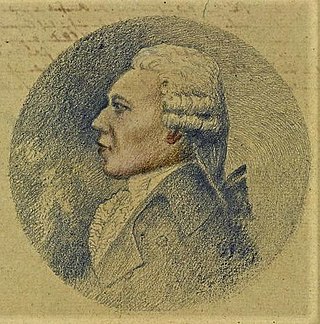
Carl Philipp Stamitz was a German composer of partial Czech ancestry. He was the most prominent representative of the second generation of the Mannheim School.

Maria Luigi Carlo Zenobio Salvatore Cherubini was an Italian Classical and Romantic composer. His most significant compositions are operas and sacred music. Beethoven regarded Cherubini as the greatest living composer of his era. Cherubini's operas were heavily praised and interpreted by Rossini.
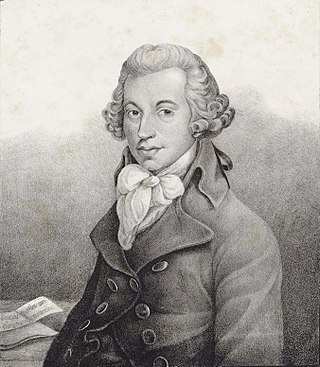
Ignaz (Ignace) Joseph Pleyel was an Austrian composer, music publisher and piano builder of the Classical period. He grew up in Austria, and was educated there; in his mid-twenties he moved to France, and was based in France for the rest of his life.
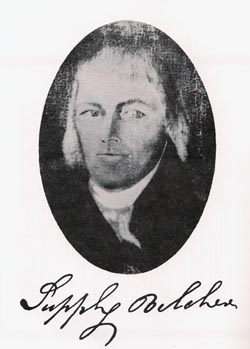
Supply Belcher was an American composer, singer, and compiler of tune books. He was one of the so-called Yankee tunesmiths or First New England School, a group of mostly self-taught composers who created sacred vocal music for local choirs. He was active first in Lexington, Massachusetts, then eventually moved to Farmington, Maine. Like most of his colleagues, Belcher could not make music his main occupation, and worked as tax assessor, schoolmaster, town clerk, and so on; nevertheless he was considerably well known for his musical activities, and even dubbed 'the Handell [sic] of Maine' by a local newspaper. Most of his works survive in The Harmony of Maine, a collection Belcher published himself in Boston in 1794.

Niccolò Antonio Zingarelli was an Italian composer, chiefly of opera.
Philip Greeley Clapp was an American educator, conductor, pianist, and composer of classical music.

Artemy Lukyanovich Vedel, born Artemy Lukyanovich Vedelsky, was a Ukrainian-born Russian composer of military and liturgical music. He produced works based on Ukrainian folk melodies, and made an important contribution in the music history of Ukraine. Together with Maxim Berezovsky and Dmitry Bortniansky, Vedel is recognised by musicologists as one of the "Golden Three" composers of 18th century Ukrainian classical music, and one of Russia's greatest choral composers.

Benjamin Carr was an American composer, singer, teacher, and music publisher.

Friedrich Ludwig Æmilius Kunzen was a German composer and conductor who lived and worked for much of his life in Denmark.
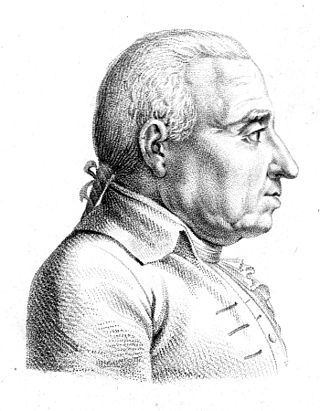
Pierre Gaviniès was a French violinist, pedagogue and composer.
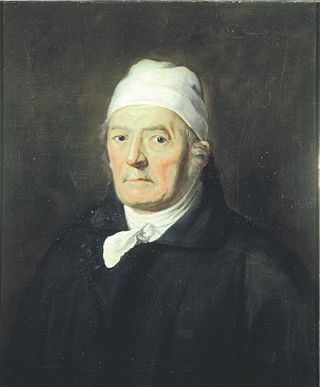
Nikolaus Simrock was a German horn player at the court of the Elector of Cologne in Bonn and a music publisher. He was a friend of Ludwig van Beethoven and founder of the N. Simrock music publishing house. "Highly esteemed as a man and a musician", he remained in contact with Beethoven throughout the 1790s and is regarded as a "reliable witness" to Beethoven's years in Bonn.
Christopher Wilke is an American composer, lutenist, guitarist, recording artist, and teacher.
Kleinknecht is a German surname, whet 'klein' means small and 'Knecht' servant. Notable people with the surname include:















